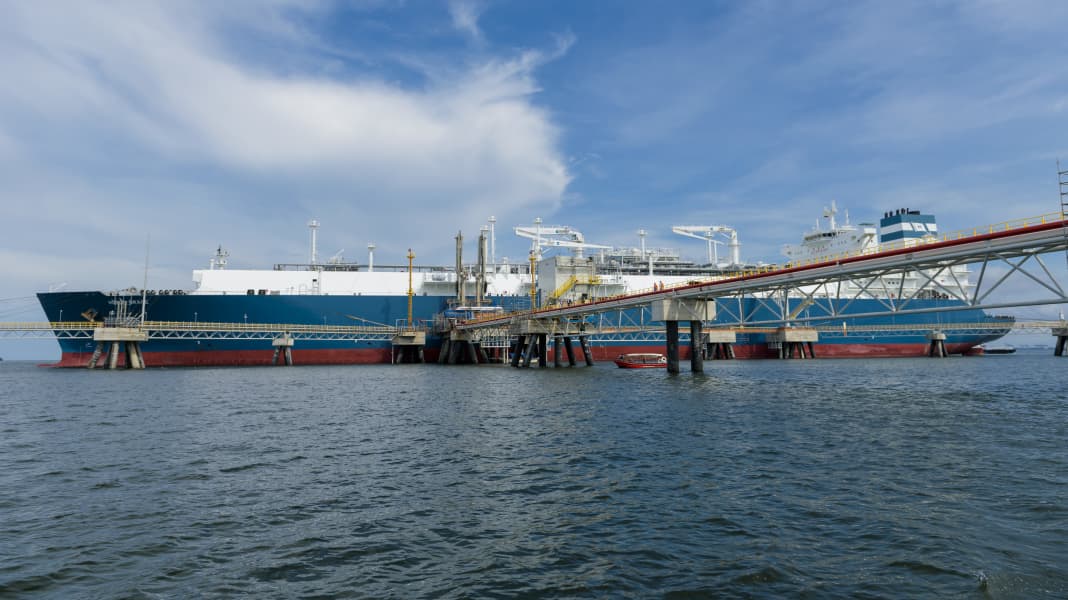
The notices to mariners (BfS) now state: "The construction work on the UVG (LNG terminal) has been completed. The restricted area around the LNG terminal during the construction phase has been lifted." This means that shipping, including sailors, can once again navigate the fairway as planned.
Previous message from 20.12.2022:
The previous BfS stated: "With immediate effect, the following distance regulation applies to all vessels in the Jade fairway with regard to LNG tankers: The distance for preceding and following vessels to an LNG tanker must not be less than 1 nautical mile. Encounters are possible in accordance with the known regulations."
The restricted area around the Voslapper Groden transshipment facility, where the new LNG terminal is located, was delimited by the following positions:
- A - 53° 38.45' N; 008° 05.20' E
- B - 53° 39.09' N; 008° 06.78' E
- C - 53° 38.35' N; 008° 07.65' E
- D - 53° 37.70' N; 008° 06.01' E
"Navigation is permitted for commercial shipping to and from the facility as well as to and from the mussel farms," according to an earlier BfS. For sailors wishing to call at or leave neighbouring Hooksiel, however, it is particularly important that they are still allowed to pass south of fairway buoy H3 to the Hooksiel outer harbour, which lies within the restricted area.
The responsible waterways and shipping authority has laid out restricted area buoys at the northern navigation ban limit at the positions 53° 39.064' N; 008° 06.714' E and 53° 38.525' N; 008° 05.650' E. They are yellow and marked with a red cross. They are yellow in colour and marked with a red cross.
The LNG terminal commenced regular operations in mid-January. It is the first completed facility of its kind in Germany.
LNG terminals also launch in Lubmin and Brunsbüttel
An LNG terminal ship has now also arrived on the German Baltic coast. It is moored in Lubmin on the eastern Greifswalder Bodden. A similar ship is also due to moor in Brunsbüttel on the Elbe soon.
How dangerous is it to sail near such a terminal - while observing restricted areas - or to pass an LNG tanker at sea? Terminal operator Uniper writes: "LNG itself is not flammable. The high density at low temperature prevents this. If LNG escapes unintentionally, it vaporises and quickly disappears into the atmosphere, as it is lighter than air - unlike LPG (liquid petroleum gas). However, escaped LNG can be converted into natural gas by the heat input from the environment and thus either form a flame when ignited or an explosive atmosphere if vaporised for a longer period of time."
The effects in the event of a fire or even an explosion at the terminal would remain largely limited to the facility. According to Uniper, shipping in the Jade navigation channel would not be jeopardised in the event of a malfunction or accident.
